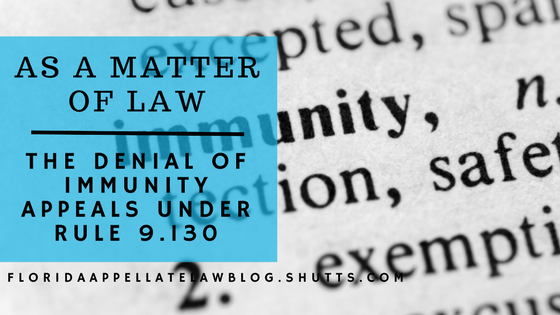
On appeal, the expert testimony was thrown out under Daubert. Product liability suit where P used expert testimony.Rules 50(a) and 50(b) do not apply in judge-tried cases.Reconsidering the jury's verdict violates the Seventh Amendment unless the judge reserved the right to do so on a motion made before the case went to the jury.Thus, a lawyer cannot use new reasoning for a Rule 50(b) motion not used in his 50(a) motion.Wake up call to P's lawyer, can reopen case to get in the insufficient evidence.Motion must be made under Rule 50(a) before the case goes to the jury.Motion must be made within 10 days of the jury's verdict for the P.
JUDGEMENT AS A MATTER OF LAW JMOL TRIAL
Reviewing JMOL after verdict on appeal-if the appellate court finds that the evidence was sufficient to support a finding for the P, can just overrule the trial judge's JMOL decision and enter the judgment based upon the jury's decision. ("No rational jury could find for the victor.") 
The standard for granting the motion after verdict is the same as the motion made before the case goes to the jury-that the evidence is too weak to support a rational verdict for the P.Judgment Notwithstanding the Verdict (JMOL after verdict) (Rule 50(b)).

Thus, trial courts are more wary of granting them because of the possibility for waste.
Reviewing JMOL before verdict on appeal - If a JMOL before verdict is overturned, the case must be remanded for a new trial. "Burden of Proof" - P bears the burden of proving their case by a preponderance of the evidence (stricter burden). If the judge concludes that the P has met the burden of production on each element of their claim, JMOL will be denied, case go to the jury. (Is the decision in the debatable range?) Judge must ask whether a jury, looking at the evidence, could rationally be convinced of it. "Burden of Production" - P bears the burden to convince the judge that their evidence is strong enough on each element of their claim to support a rational verdict in their favor. If the P has no evidence, or clearly insufficient evidence, to establish a required element of the claim, courts have held that the jury has no legitimate role to play, because its constitutional role as the finder of facts is not required. If there is a such a conflict in the evidence, so that reasonable jurors could find for either party, the jury should resolve the conflict by "finding the facts.". This does not disrupt the Seventh Amendment since it only guarantees a jury decision where there is a legitimate dispute in the evidence, where a meaningful dispute exists about whether the facts the P must establish are true. However, judge should consider the "uncontradicted, unimpeached evidence" for the movant. If certain testimony would support two inferences, one that supports recovery and one that does not, the judge should assume the jury will make the inferences in favor of the nonmoving party. Judge must assume that the jury will construe the evidence in favor of the nonmoving party and not weight the credibility of witnesses. Judge should not decide whether D's evidence is stronger than P's, only whether a jury could rationally find for the P on the evidence before it. Motion should be granted where there is "no legally sufficient evidentiary basis" for the jury to find for the party opposing the motion. The purpose of a directed verdict motion is to ask the trial judge to take the case away from the jury, on the ground that the evidence is insufficient to support a verdict for the P. Directed Verdict Motion (JMOL before verdict) (Rule 50(a)). 
Judge is allowed to weigh the evidence, no favorable light requirement.
 When district court is "convinced that the jury has reached a seriously erroneous result or that the verdict is a miscarriage of justice." (Tesser, Smith). Mostly, they are given if the jury verdict is "against the weight of the evidence." Rule 59(b) allows a party to move for a new trial new trial motions will be granted to redress prejudicial errors. Appellate courts can grant JMOL as well if it throws out some crucial evidence was improperly admitted by the trial court. JMOL is constitutional under the Seventh Amendment as long as the court does not weigh the evidence or simply second-guess the jury's judgment. Judge must view the evidence in the light most favorable to the nonmoving party (Reeves). However, the judge is not permitted to weigh the evidence or assess the credibility of witnesses. Rule 50 allows a judge to decide a case himself through JMOL if no reasonable jury could find for a party. Civil Procedure Outline - Judgment as a Matter of Law/New Trial **Abridged JMOL/New Trial**
When district court is "convinced that the jury has reached a seriously erroneous result or that the verdict is a miscarriage of justice." (Tesser, Smith). Mostly, they are given if the jury verdict is "against the weight of the evidence." Rule 59(b) allows a party to move for a new trial new trial motions will be granted to redress prejudicial errors. Appellate courts can grant JMOL as well if it throws out some crucial evidence was improperly admitted by the trial court. JMOL is constitutional under the Seventh Amendment as long as the court does not weigh the evidence or simply second-guess the jury's judgment. Judge must view the evidence in the light most favorable to the nonmoving party (Reeves). However, the judge is not permitted to weigh the evidence or assess the credibility of witnesses. Rule 50 allows a judge to decide a case himself through JMOL if no reasonable jury could find for a party. Civil Procedure Outline - Judgment as a Matter of Law/New Trial **Abridged JMOL/New Trial**








 0 kommentar(er)
0 kommentar(er)
